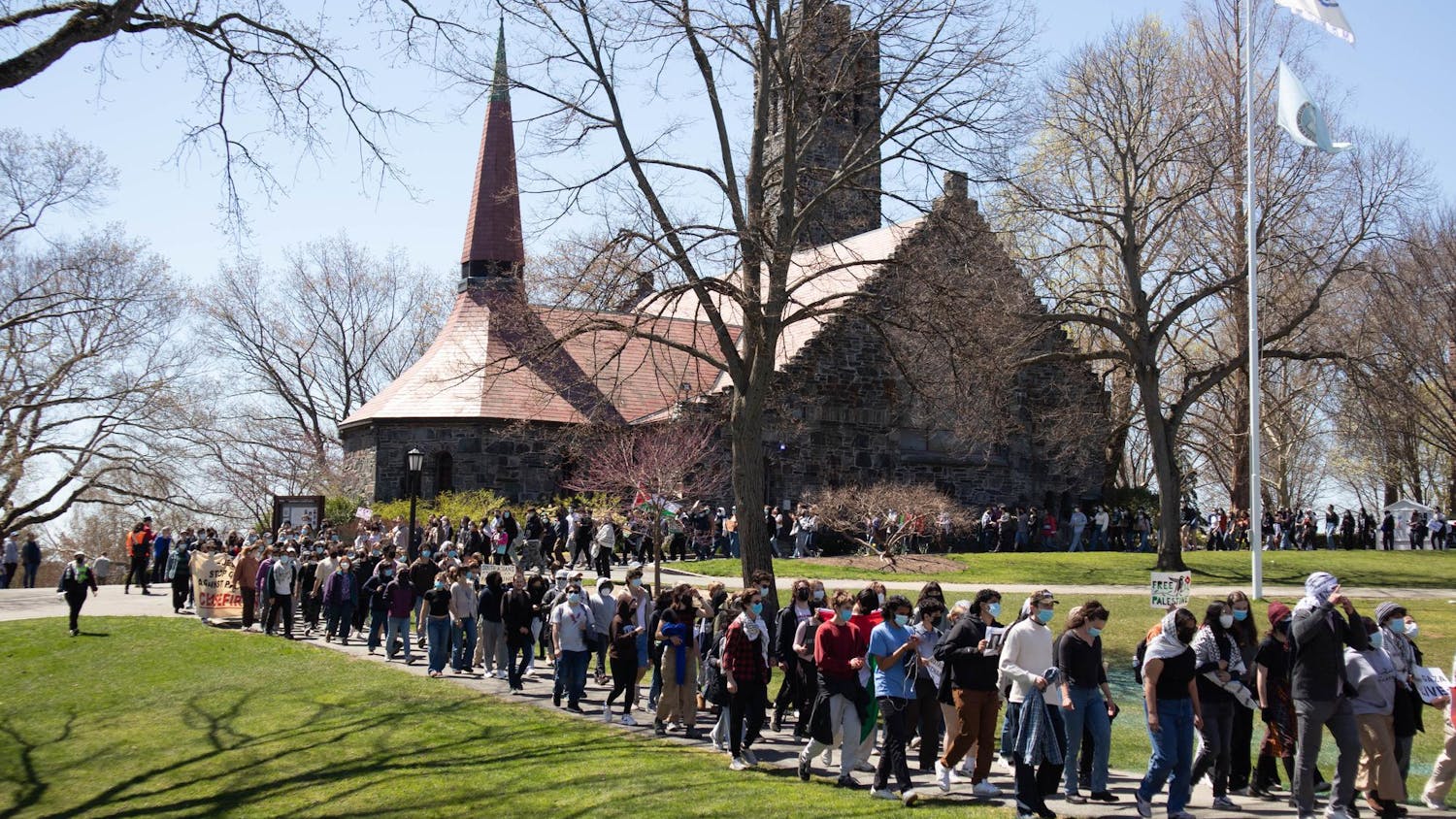Tufts Mock Trial (TMT), an extinct program as recently as eight years ago, has established itself as a regional force after a remarkable string of victories in the fall following an appearance at the elite American Mock Trial Association (AMTA) National Championship Tournament last April.
The team placed 46th in the AMTA's 2010−2011 "Bonus Bid" Rankings, up from 83rd for the previous year, according to the AMTA website.
Re−established in 2003 after a lapse in popularity ended the club's first run in 2000, the program won two invitational tournaments, placed in two others and racked up 13 individual awards in the fall semester — without outside help.
"The program has an entirely unique feel to it, mainly because we're entirely student−run without a coach, unlike almost every other competitive program out there," junior Tomas Garcia, the program's co−president, said. "That underdog feel, combined with an excellent team atmosphere and great successes in the past few years, keeps me involved with the program."
Mock Trial members are uniquely situated to benefit from both the aggressive environment and legal skills learned throughout the process, according to senior Jonathan Lautin, the program's other co−president. "I love the competition aspect that is similar to any sports team, but at the same time we are developing skills that will help us for a lifetime," Lautin said.
Those skills — including the ability to problem solve and think on one's toes, as well as knowledge of the legal process — have contributed to heretofore−unprecedented early success for the team.
"For the fall semester we do not stack our teams, meaning each of our four teams is selected to have the same amount of talent … and, as a result, our performances during the fall semester have been mediocre in the past," Lautin said. "However, this year, even without stacking our teams, we have had tremendous success."
The main difference, according to Lautin, has been the induction of a more competitive tryout process than in previous years. As a result, a stronger collection of nine freshmen has hit the ground running as productive team members, he said.
"Our new members began adding to the success of the program from the first day," Lautin said.
Garcia also considers the new blood as pivotal to the team's success thus far.
"The entire program has stepped up as a whole, driven by a surge of talent and dedication from the freshman members," Garcia said.
Tufts Mock Trial is not just about the competition, however. For both co−presidents, it has been an integral part of their experience at Tufts.
Last March, the program's "A" team upset squads fielded by Harvard, Yale and Dartmouth in the Opening Round Championship Series, earning itself the nickname "Weed Whackers" in the process, according to Lautin.
"It's always fun to beat the Ivies, especially Harvard," Lautin said.
Sophomore Jessica Wolff, who plays the role of a lawyer on the team, similarly considers mock trial victories particularly pleasing.
"There is nothing like the process of discovering a legal argument and the thrill of owning the opposing counsel with it in trial, she said. "[It's] very thrilling."
Still, Lautin values the team's interpersonal relationships more than success in competition.
"My favorite part of TMT is the camaraderie the program shares," Lautin said. "Although we work hard and at times it can be incredibly stressful, we always manage to have fun together."
Because the team travels often, overhead costs are significant, and each member pays $100 in dues in order to compete, though the fee is waived when a student lacks the means.
"I'm proud to say that no student who wants to do Mock Trial has not been able to due to financial reasons, though funding our rapidly growing program is a concern going into the future," Garcia said.
Lautin also voiced concerns about funding, which is provided by outside donors and contributions from the Tufts Community Union Senate.
"We have a pretty extraordinary track record of being underfunded the past four years because our success requires us to travel to more tournaments that are further away from Tufts," he said. "Fortunately, we have always found a way to make it to every tournament, but sometimes we are forced to spend our time fundraising when we should be practicing."
Financial matters aside, both Garcia and Lautin believe that the program has the opportunity and the talent to become an elite force on the national mock trial stage.
"Our long−term plans for Tufts Mock Trial are to become a top−10 program in the country and return year after year to the AMTA National Championship Tournament," Lautin said.
For Lautin, law will continue to be a part of his life once he graduates from Tufts this spring; partly due to his experiences on the team, he has decided to attend law school.
Garcia, on the other hand, explains the role of Tufts Mock Trial in his life in simpler terms: "I'm here for the fun, the team and the win."





